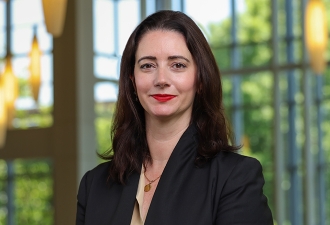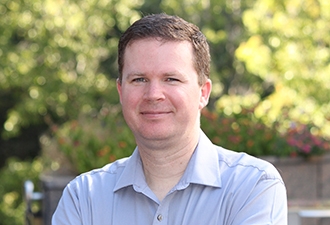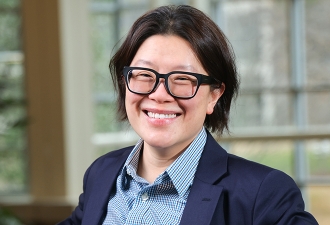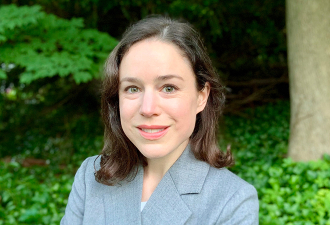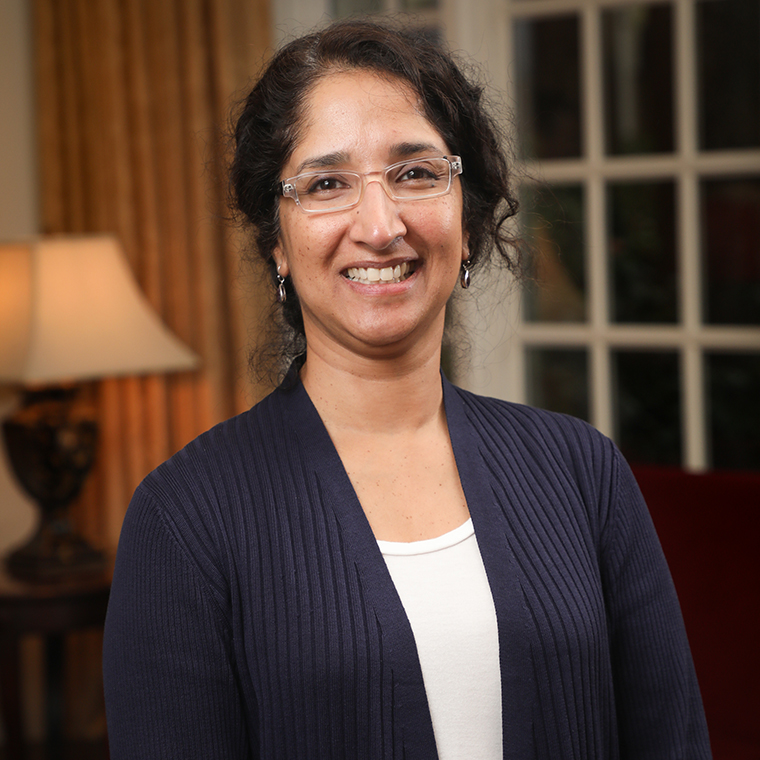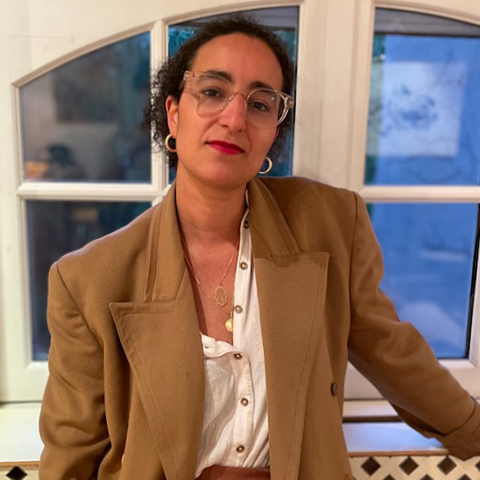International Law and Human Rights
An understanding of international law is essential to virtually every legal practice area in an interconnected world, whether one is developing policy in a government or NGO, handling cross-border transactions for corporate clients, or advocating for the human rights of a marginalized group.
Duke Law faculty research and teaching across a broad range of international law and human rights subjects are informed by their wealth of practical experience working within or advising such entities as the United Nations Human Rights Committee, the Legal Adviser’s Office of the U.S. State Department, the Office of the U.S. Trade Representative, and U.N. Women. At Duke Law, students can immerse themselves in study and practice by enrolling in the International Human Rights Clinic, joining the staff of the Duke Journal of Comparative & International Law, serving as a student editor on the peer-reviewed American Journal of International Law, or undertaking specialized study to earn an LLM in international law and comparative law along with their JD.
Featured Faculty

Laurence R. Helfer
Harry R. Chadwick, Sr. Professor of Law
The roots of Laurence Helfer's research interests, which range from the narrowing of human rights in an era of populism to the withdrawal of nations from multilateral institutions, reach back to his law practice, "from being exposed to the real-world implications of these issues." Professor Helfer is an expert in the areas of international law and institutions, international adjudication and dispute settlement, human rights (including LGBTQ rights), and international intellectual property law and policy. In 2022, he was elected to be the U.S. representative on the 18-member United Nations Human Rights Committee.
More Faculty
Selected Courses
218 Comparative Law
This course provides an overview of comparative law. We will learn about the differences and similarities, both real and perceived, between different legal orders. We will compare both civil law and common law systems, and authoritarian and liberal legal systems. We will also investigate the rise and fall of foreign legal studies in the U.S., from soviet law in the 1960s-1970s, Japanese law in the 1980s-1990s, European Union law in the early 2000s, and Chinese law in the recent decade. We will investigate the impact of American law on foreign countries and international law, and foreign law in American courts. On a theoretical level, we will try to understand what it means to "compare", and how it can help us both to understand other legal systems as well as our own.
361 International Trade Law
International trade and the World Trade Organization attract a lot of attention and debate. Why do almost all economists say that liberalizing trade flows is a good thing? Why do politicians – even ones who purportedly support free markets – often rail against import competition and "unfair trade"? How does trade liberalization interact with other public policy choices such as protecting the environment or promoting the economic development of poor countries? In this course, we will examine why the WTO exists, how it developed from the GATT and how it fits in the international economic order (Part I). The course will offer you an in-depth, practical knowledge of substantive WTO law drawing heavily on case law. It will address the basic principles of trade in goods and trade in services, as well as some of the more specialized WTO agreements on, for example on trade remedies (subsidies, anti-dumping and safeguards). From a more procedural side, the course will pay close attention to the unique WTO mechanism for the solution of global trade disputes, with special reference again to recent and ongoing cases (Part II). It will conclude by examining U.S. trade law – particularly the widely-used trade remedies laws – and assessing not only the practice of international trade law in the United States, but also whether these laws actually achieve their supposed policy objectives (Part III). Although this course will necessarily address key principles and theories undergirding the international trade law system, one of its driving themes will be the actual practice of this discipline in the United States and at the WTO.
537 Human Rights Advocacy
This course critically assesses the field of human rights advocacy, its institutions, strategies, and key actors. It explores how domestic, regional, and global human rights agendas are set using international law frameworks; the ethical and accountability dilemmas that arise in human rights advocacy; and human rights advocacy concerning a range of actors, including governments, international institutions, and private actors. It addresses the role of human rights in social movements, including in addressing systemic racism, as well as the development of transnational human rights networks. It also considers issues such as how to resolve purported hierarchies and conflicts between internationally-guaranteed rights, efforts to decolonize the practice of human rights, and the ways in which populist and other forces also invoke human rights to further particular agendas. Drawing on case studies within the United States and abroad, it will examine core human rights advocacy tactics, such as fact-finding, litigation, standard-setting, indicators, and reporting, and consider the role of new technologies in human rights advocacy. In examining the global normative framework for human rights, this course focuses on how local, regional, and international struggles draw on, and adapt, the norms and tactics of human rights to achieve their objectives.
546 International Law of Armed Conflict
This seminar will examine the international law of armed conflict, and it focuses on the jus in bello context. Students will consider the rationale for the key concepts of the law of armed conflict and examine their practical application in various contexts. Case studies (contemporary and historical) will be examined in conjunction with the topics covered. This historical context for the law of armed conflict — agreements, the status of conflicts, combatants, and civilians, targeting, rules of engagement, war crimes — are all included among the topics the class will address. Students will be encouraged to relate legal and interdisciplinary sources in order to better understand the multi-faceted interaction between law and war.
558 Foreign Anti-Bribery Law
Corruption is one of the major factors inhibiting economic development and undermining governmental legitimacy. Developed governments generally enforce rules prohibiting domestic corruption but have historically been less concerned with (and even encouraging of) foreign government corruption. The United States passage of the Foreign Corrupt Practices Act in 1977, which prohibits covered entities from bribing foreign officials, represents a major shift in this policy. In the last fifteen years, most other major economies and economic institutions (the IMF, the World Bank) have followed suit, although enforcement has been inconsistent. This seminar will examine the origins and evolution of this effort to regulate firms' relationships with foreign government officials.
218 Comparative Law
This course provides an overview of comparative law. We will learn about the differences and similarities, both real and perceived, between different legal orders. We will compare both civil law and common law systems, and authoritarian and liberal legal systems. We will also investigate the rise and fall of foreign legal studies in the U.S., from soviet law in the 1960s-1970s, Japanese law in the 1980s-1990s, European Union law in the early 2000s, and Chinese law in the recent decade. We will investigate the impact of American law on foreign countries and international law, and foreign law in American courts. On a theoretical level, we will try to understand what it means to "compare", and how it can help us both to understand other legal systems as well as our own.
361 International Trade Law
International trade and the World Trade Organization attract a lot of attention and debate. Why do almost all economists say that liberalizing trade flows is a good thing? Why do politicians – even ones who purportedly support free markets – often rail against import competition and "unfair trade"? How does trade liberalization interact with other public policy choices such as protecting the environment or promoting the economic development of poor countries? In this course, we will examine why the WTO exists, how it developed from the GATT and how it fits in the international economic order (Part I). The course will offer you an in-depth, practical knowledge of substantive WTO law drawing heavily on case law. It will address the basic principles of trade in goods and trade in services, as well as some of the more specialized WTO agreements on, for example on trade remedies (subsidies, anti-dumping and safeguards). From a more procedural side, the course will pay close attention to the unique WTO mechanism for the solution of global trade disputes, with special reference again to recent and ongoing cases (Part II). It will conclude by examining U.S. trade law – particularly the widely-used trade remedies laws – and assessing not only the practice of international trade law in the United States, but also whether these laws actually achieve their supposed policy objectives (Part III). Although this course will necessarily address key principles and theories undergirding the international trade law system, one of its driving themes will be the actual practice of this discipline in the United States and at the WTO.
537 Human Rights Advocacy
This course critically assesses the field of human rights advocacy, its institutions, strategies, and key actors. It explores how domestic, regional, and global human rights agendas are set using international law frameworks; the ethical and accountability dilemmas that arise in human rights advocacy; and human rights advocacy concerning a range of actors, including governments, international institutions, and private actors. It addresses the role of human rights in social movements, including in addressing systemic racism, as well as the development of transnational human rights networks. It also considers issues such as how to resolve purported hierarchies and conflicts between internationally-guaranteed rights, efforts to decolonize the practice of human rights, and the ways in which populist and other forces also invoke human rights to further particular agendas. Drawing on case studies within the United States and abroad, it will examine core human rights advocacy tactics, such as fact-finding, litigation, standard-setting, indicators, and reporting, and consider the role of new technologies in human rights advocacy. In examining the global normative framework for human rights, this course focuses on how local, regional, and international struggles draw on, and adapt, the norms and tactics of human rights to achieve their objectives.
546 International Law of Armed Conflict
This seminar will examine the international law of armed conflict, and it focuses on the jus in bello context. Students will consider the rationale for the key concepts of the law of armed conflict and examine their practical application in various contexts. Case studies (contemporary and historical) will be examined in conjunction with the topics covered. This historical context for the law of armed conflict — agreements, the status of conflicts, combatants, and civilians, targeting, rules of engagement, war crimes — are all included among the topics the class will address. Students will be encouraged to relate legal and interdisciplinary sources in order to better understand the multi-faceted interaction between law and war.
558 Foreign Anti-Bribery Law
Corruption is one of the major factors inhibiting economic development and undermining governmental legitimacy. Developed governments generally enforce rules prohibiting domestic corruption but have historically been less concerned with (and even encouraging of) foreign government corruption. The United States passage of the Foreign Corrupt Practices Act in 1977, which prohibits covered entities from bribing foreign officials, represents a major shift in this policy. In the last fifteen years, most other major economies and economic institutions (the IMF, the World Bank) have followed suit, although enforcement has been inconsistent. This seminar will examine the origins and evolution of this effort to regulate firms' relationships with foreign government officials.
International Human Rights Clinic
Through class work and collaborative fieldwork, students in the International Human Rights Clinic learn to critically engage with cutting-edge human rights issues, strategies, tactics, institutions, and law in both domestic and international settings. They develop a skillset of interdisciplinary advocacy tools — such as fact-finding, litigation, indicators, reporting, and messaging — and develop competencies related to managing trauma in human rights work as well as the ethical and accountability challenges of human rights lawyering.
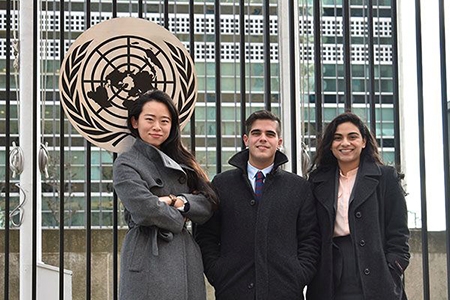
JD/LLM in International and Comparative Law
The dual-degree JD/LLM in International and Comparative Law is an integrated three-year program that combines rigorous legal training with in-depth study of global issues, opportunities to work and study abroad, and focused mentoring, networking, and career development. Students in the program attend the Duke-Leiden Institute in Global and Transnational Law, a summer residential program held at Leiden University’s campus in The Hague that also enrolls other U.S. law students as well as international law students and attorneys.

Meet Maryam Kanna '21

As a student in the JD/LLM in International and Comparative Law dual-degree program, Maryam spent part of the summer after her first year participating in the Duke-Leiden Institute in Global and Transnational Law after completing an internship with Lenz & Staehelin in Geneva. During her second year at Duke Law, Kanna was president of the Middle East and North African Law Students Association. She has also worked in the International Human Rights Clinic, served as executive director of events and advocacy for the Duke Immigrant and Refugee Project, a Duke Law Journal notes editor, and a student editor on the American Journal of International Law. Maryam is now an associate with Debevoise & Plimpton, a premier law firm with market-leading practices based in New York City.




